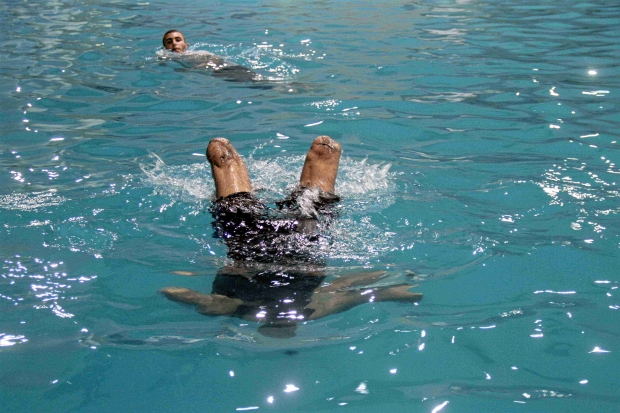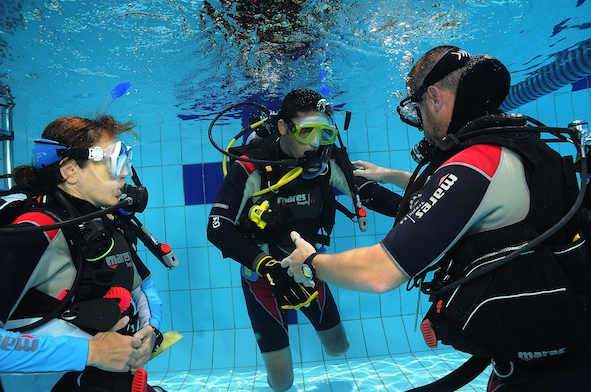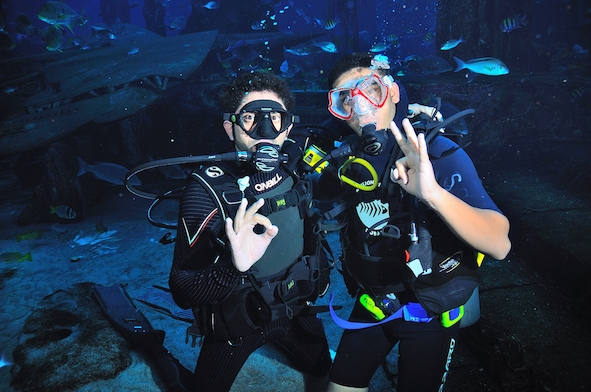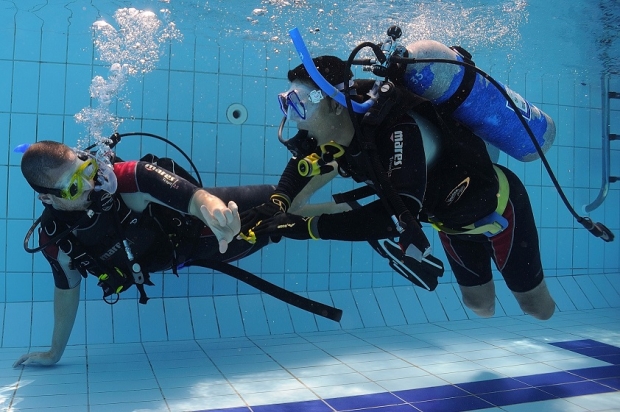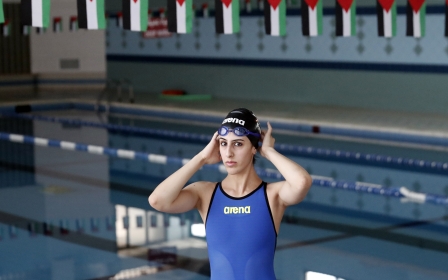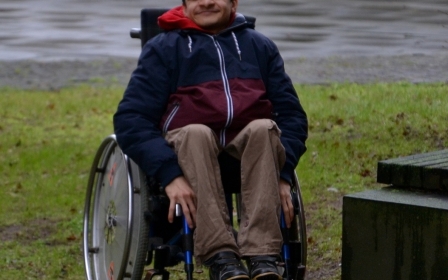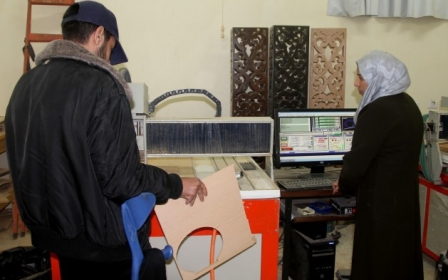Leap of faith: The miracle diver of Gaza
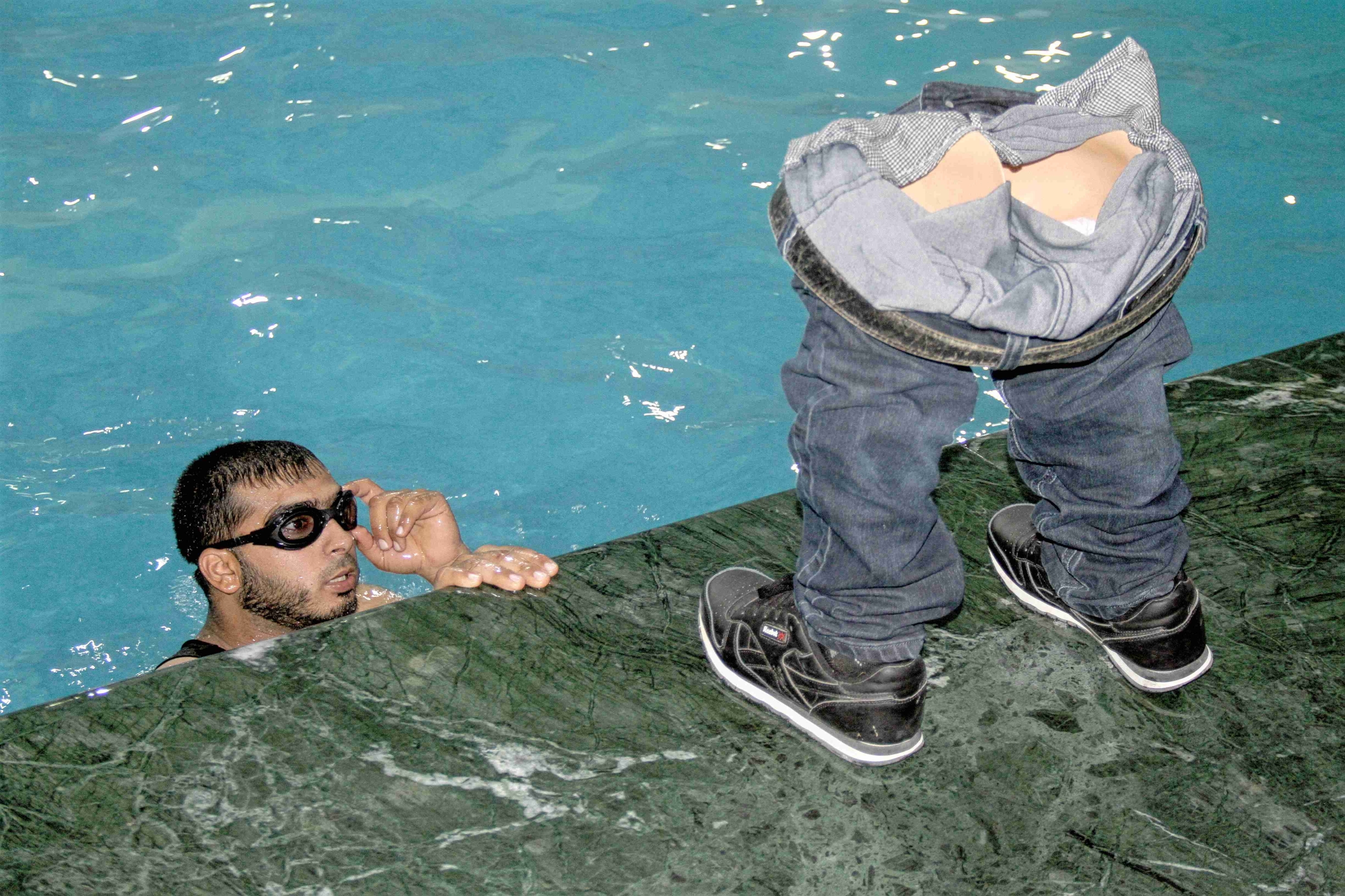
GAZA CITY - Khalil Eljadaili was sitting at home when his life changed forever.
He lost both his legs in January 2009 after his home in the Bureij camp in Gaza was bombed by Israeli forces. First he heard the bombardment. Then the windows broke.
Soon the teenager found himself lying on the ground in severe pain, hit by shrapnel and crying for help until he lost consciousness.
"Being disabled doesn't mean being hopeless in life," he said, "you must disable your depression to get through your disability."
That was in January 2009. Now Eljadaili is a diver.
“What makes diving under water special is that there is no difference between people with disabilities and able-bodied people," he said. "I can send a message to all people with disabilities not to give up and to live their life as they want. Also, not to let other people tell them how to live their life.”
But reaching this point has been tough. "Even with no legs my determination will move me up, forwards," said Eljadaili, now 24.
A new world
The first challenge was the wheelchair. Eljadaili could not get used to it and had to ask his family for help because his arms weren't yet strong enough for him to move himself around.
"It's hard to work on when your demons are dragging you down," he said.
In 2010, he went to a hospital in Dubai for treatment, with help from Gaza's ministry of health and the Red Crescent. It was there that he met a diver who suggested he should try the activity.
"I went to the divers' village to ask about the possibility of practice and explained my health situation,” Eljadaili recalled. "A number of international trainers worked with me and taught me the basic skills and how to communicate under water."
When Eljadaili began he could not swim but was spurred on by the encouragement of friends. He recalls how, when he first pulled on the diving suit and put on an oxygen mask, the feeling was indescribable, making him work harder to master the sport and challenge his condition.
The early days were not without problems, as much psychological and emotional as physical.
“I loved diving so much, I did not want to stop practising this sport,” he said. “It’s very enjoyable and I have seen lots of the secrets in the water.”
One aspect Eljadaili had not anticipated was the richness of life under water while diving off the coast of Dubai. The beauty of "Allah’s creation," as he calls it, stunned him.
Soon he was progressing from diving to a depth of six metres to 10. He is now certified as a professional trainer by the Dubai Sports Club and is helping other people with special needs.
“I became very passionate about this sport. After coming back to Gaza, I read tens of books in addition to doing lots of training inside the swimming pool with my friend’s assistance. I gained substantial skills that made me able to compete with other divers.”
Israeli ban hits progress
He came back to Gaza in January 2010 after spending three months in the UAE for treatment.
But he still faced a problem – a lack of equipment such as diving suits, diving fins and oxygen tanks because of the Israeli blockade on the territory. Importers of sports equipment are often hit by the ban, imposed by Israeli fears that they may be used for maritime attacks by Hamas.
‘When I saw Khalil Eljadaili practising diving with no legs, I become motivated to practise’
- Yousef Kamal
Eljadaili had always wanted to study management, so he went ahead and studied business management at the Islamic University of Gaza. Despite graduating with a degree, like many young men in Gaza he has been unable to get a job and survives with support from the Palestinian Ministry of Social Development.
Currently, he can dive and swim without any assistance from his colleagues or the less experienced divers he now teaches.
Yousef Kamal, 27, from Gaza City, lost his legs during the Israeli war in 2014 when the edge of his home was bombed while he sat on the terrace.
“When I saw Khalil Eljadaili practising diving with no legs, I become motivated to practise this sport, but unfortunately I cannot learn it in Gaza as the required equipment is not allowed in.”
‘What Khalil Eljadaili did is an extraordinary thing. It isn’t easy to master diving with no legs’
- Siraj Abu Hamam, swimming trainer
Siraj Abu Hamam, a swimming trainer at the private El Sadaqa sports club, said many young people in Gaza want to learn to dive but cannot because of the ban on equipment.
He said that Eljadaili's achievement has been remarkable, and that his colleagues have treated him as if he were an able-bodied swimmer.
“What Khalil Eljadali did is an extraordinary thing. It's not easy to master diving with no legs, because using your legs helps a lot.
"But this young man could master this sport which has become part of his life, with no legs.”
This article is available in French on Middle East Eye French edition.
Stay informed with MEE's newsletters
Sign up to get the latest alerts, insights and analysis, starting with Turkey Unpacked
Middle East Eye delivers independent and unrivalled coverage and analysis of the Middle East, North Africa and beyond. To learn more about republishing this content and the associated fees, please fill out this form. More about MEE can be found here.


